Samuel Beckett - Dream of Fair to Middling Women
Here you can read online Samuel Beckett - Dream of Fair to Middling Women full text of the book (entire story) in english for free. Download pdf and epub, get meaning, cover and reviews about this ebook. year: 2011, publisher: Arcade Publishing, genre: Detective and thriller. Description of the work, (preface) as well as reviews are available. Best literature library LitArk.com created for fans of good reading and offers a wide selection of genres:
Romance novel
Science fiction
Adventure
Detective
Science
History
Home and family
Prose
Art
Politics
Computer
Non-fiction
Religion
Business
Children
Humor
Choose a favorite category and find really read worthwhile books. Enjoy immersion in the world of imagination, feel the emotions of the characters or learn something new for yourself, make an fascinating discovery.
- Book:Dream of Fair to Middling Women
- Author:
- Publisher:Arcade Publishing
- Genre:
- Year:2011
- Rating:5 / 5
- Favourites:Add to favourites
- Your mark:
- 100
- 1
- 2
- 3
- 4
- 5
Dream of Fair to Middling Women: summary, description and annotation
We offer to read an annotation, description, summary or preface (depends on what the author of the book "Dream of Fair to Middling Women" wrote himself). If you haven't found the necessary information about the book — write in the comments, we will try to find it.
Dream of Fair to Middling Women — read online for free the complete book (whole text) full work
Below is the text of the book, divided by pages. System saving the place of the last page read, allows you to conveniently read the book "Dream of Fair to Middling Women" online for free, without having to search again every time where you left off. Put a bookmark, and you can go to the page where you finished reading at any time.
Font size:
Interval:
Bookmark:
DREAM
OF FAIR
to middling
WOMEN

DREAM
OF FAIR
to middling
WOMEN a novel
SAMUEL
BECKETT
Edited by Eoin O'Brien and Edith Fournier
Foreword by Eoin O'Brien

Fifteen hundred copies of the Collector's Edition of
Dream of Fair to Middling Women
have been specialty printed on 100 gsm Chinese Yulong Cream paper. Each copy has a ribbon marker, decorative endpapers, and is bound in wibalin with gilt stamping on the cover and spine.
Copyright 1992, 2011 by The Samuel Beckett Estate
All Rights Reserved. No part of this book may be reproduced in any manner without the express written consent of the publisher, except in the case of brief excerpts in critical reviews or articles. All inquiries should be addressed to Arcade Publishing, 307 West 36th Street, 11th Floor, New York, NY 10018.
Arcade Publishing books may be purchased in bulk at special discounts for sales promotion, corporate gifts, fund-raising, or educational purposes. Special editions can also be created to specifications. For details, contact the Special Sales Department, Arcade Publishing, 307 West 36th Street, 11th Floor, New York, NY 10018 or info@skyhorsepublishing.com .
Arcade Publishing is a registered trademark of Skyhorse Publishing, Inc., a Delaware corporation.
Visit our website at www.arcadepub.com.
This is a work of fiction. Names, characters, places, and incidents are either the work of the author's imagination or are used fictitiously.
10 9 8 7 6 5 4 3 2 1
Library of Congress Cataloging-in-Publication Data is available on file.
ISBN: 978-1-61145-313-3
Printed in China
The publication of Samuel Beckett's Dream of Fair to middling Women is an important event, both in itself and because, at long last, it brings to the public an essential text that has too long been available only to scholars.
Much will be made of the fact that Beckett did not allow the work to be published during his lifetime, and that when he referred to it, it was generally in derogatory terms. But those of us who knew Beckett for a long timein my case roughly forty yearsare well aware that he was prone to deprecate most, if not all, of his earlier work. Even Waiting for Godot did not go unscathed. In the 1970s when my wife and I were invited to see the revival of Godot, which was staged at the Odon theater in Paris, we met the author after the play at a caf in Montparnasse. Beckett was nursing a drink, and when we arrived he stood and greeted us warmly, as always, but then sat down and resumed communing for what seemed to us a very long time with the drink. Finally he asked us what we had thought of the play. We waxed enthusiastic, our reaction sincere, as he listened in silence. He knew that we had seen the original production some twenty years before at the tiny Thtre de Babylone. The stage is too big, he said, far too big, referring to the generous proportions of the Odeon. We agreed that perhaps the play had lost a smidgen of its intimacy, but none of its power. He shook his head. The text, he said, it doesn't stand up. His voice trailed off. Would he have liked to go back and change it? No, he couldn't do that. It was what it was. But, on an evening that, from our viewpoint, should have been a celebrationfor bringing Godot to the Odeon, a national theater, was a consecrationthere was a definite undertone of wake on the part of the author. He, who was constantly honing, paring away the words that seemed either excessive or imprecise, moving ineluctably toward the silence that had always been so important to him, could see nothing but the flaws. Despite that, we eventually repaired, with the play's designer, Alberto Giacomettiwhose stark set at the Odeon Beckett did fully appreciateto a bote a block or two away where, late in the evening, Beckett actually accepted an invitation to get up and dance.
All this is to say that if he was harsh about Waiting for Godot, a play that had revolutionized contemporary theater, was universally hailed as a masterpiece, and was constantly being performed around the world, one can readily imagine how unremitting his judgment could be of his earlier work. It took years and years of cajoling to get him to allow publication of Mercier and Camier, or the reissue of works long out of print such as More Pricks than Kicks or Whoroscope. The fact is that when he wrote Dream of Fair to middling Women, he ardently desired to see it published. He wrote it in the summer of 1932, after having abruptly resigned his teaching post at Trinity College, Dublin, finding teaching to be anathema to him, and he wrote it in what has been described as a white heat, finishing it before the end of summer. Having given up his two hundred pounds per annum stipend from Trinity, and with only symbolic monetary help from his parents, he felt the urgent need to earn some money from his writing. He knew that the bookwhich among other things contained incidents of sexual congress and masturbation, or what could very well be taken for suchcould not be published in his native country, for reasons of censorship, which the editors of the present volume describe. He also knew it was impossible for any French publisher to take on and translate the novel, with its puns and wordplay, its word inventions and intentional misspellings. Most of his literary connections were in Paris, but the little magazines there were not in a position to publish more than an extract or two.
That left London. Beckett took the manuscript to England and sent it around to various British publishers. Chatto and Windus, who the previous year had published Beckett's perceptive essay on Proust to critical praise and considerable commercial success, seemed a likely prospect, as did the young, literary-oriented houses, Jonathan Cape and the Hogarth Press. But by early autumn 1932, he had found no takers and was down to his last five-pound note. One publisher's reader noted: Beckett's probably a clever fellow but I wouldn't touch this with a bargepole. Another commented that it was a slavish imitation of Joyce. Its erotic content was also duly noted, needless to say negatively, and the word indecent was prominent in the evaluation. On October 8, 1932, Beckett wrote from Dublin, to which he was forced to retreat after his London debacle, to his close friend and fellow poet George Reavey:
The novel doesn't go. Shatton and Windup thought it was wonderful, but they couldn't, they simply could not. The Hogarth Private Lunatic Asylum rejected it the way Punch would. Cape was coeuer [sic] in pipe and cardigan and his aberdeen terrier agreed with it. Grayson has lost it or cleaned himself with it. Kick his balls off. They are all over 66 Curzon St. W.l.
I'll be here till I die, creeping along genteel roads on a stranger's bike.
Subsequently, Beckett sent the novel to other British publishers, but to no avail. That he wanted it published and was sorely disappointed when it was not is uncontestable.
Twenty years after this first effort at publication, another opportunity arose for the book, at long last, to see the light of day. In 1951, a young group of us living in Paris began publishing a literary magazine reminiscent in many ways of those that flowered when Beckett first came to Paris. In the second issue of that magazine I wrote an essay on Beckett in which, with fairly little to go on
Next pageFont size:
Interval:
Bookmark:
Similar books «Dream of Fair to Middling Women»
Look at similar books to Dream of Fair to Middling Women. We have selected literature similar in name and meaning in the hope of providing readers with more options to find new, interesting, not yet read works.
Discussion, reviews of the book Dream of Fair to Middling Women and just readers' own opinions. Leave your comments, write what you think about the work, its meaning or the main characters. Specify what exactly you liked and what you didn't like, and why you think so.

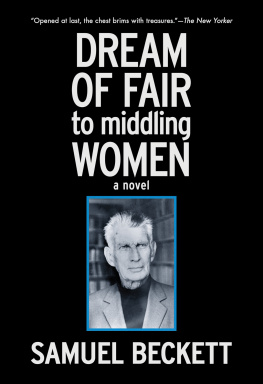
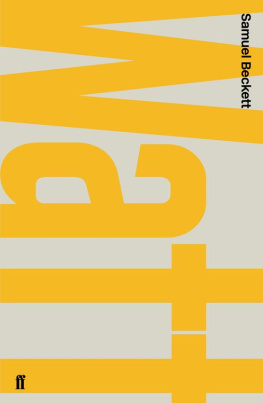
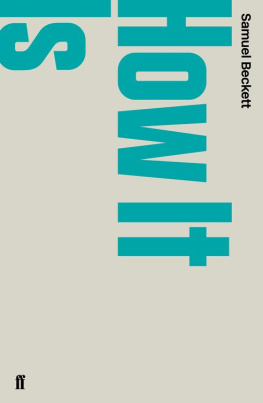
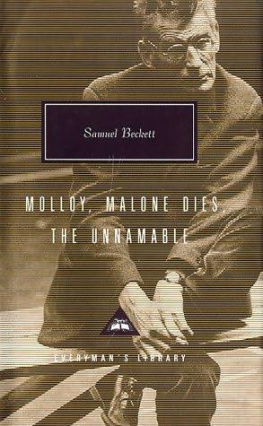
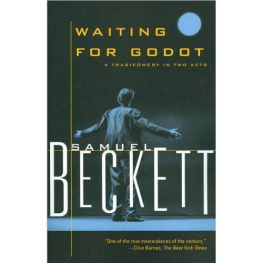
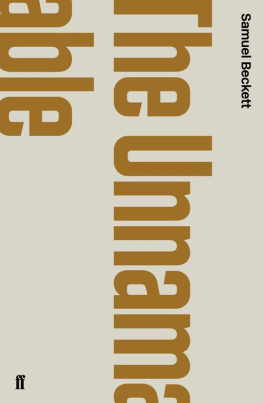



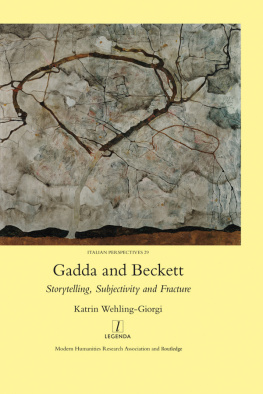

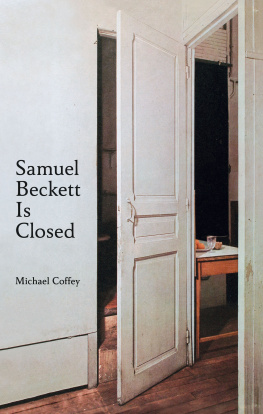
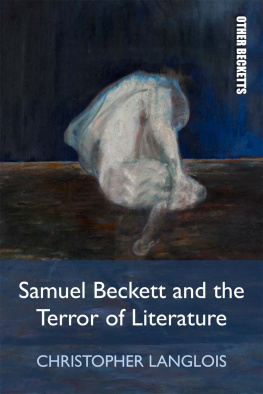

![Samuel Beckett [Samuel Beckett] - The Complete Dramatic Works](/uploads/posts/book/72751/thumbs/samuel-beckett-samuel-beckett-the-complete.jpg)